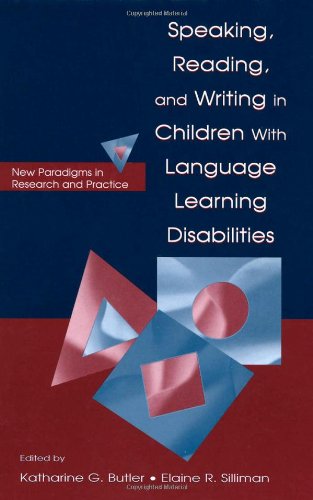

Most ebook files are in PDF format, so you can easily read them using various software such as Foxit Reader or directly on the Google Chrome browser.
Some ebook files are released by publishers in other formats such as .awz, .mobi, .epub, .fb2, etc. You may need to install specific software to read these formats on mobile/PC, such as Calibre.
Please read the tutorial at this link. https://ebooknice.com/page/post?id=faq
We offer FREE conversion to the popular formats you request; however, this may take some time. Therefore, right after payment, please email us, and we will try to provide the service as quickly as possible.
For some exceptional file formats or broken links (if any), please refrain from opening any disputes. Instead, email us first, and we will try to assist within a maximum of 6 hours.
EbookNice Team

Status:
Available0.0
0 reviews
ISBN-10 : 058539055X
ISBN-13 : 9780585390550
Author: Katharine G. Butler, Elaine R. Silliman
The ability to use language in more literate ways has always been a central outcome of education. Today, however, "being literate" requires more than functional literacy, the recognition of printed words as meaningful. It requires the knowledge of how to use language as a tool for analyzing, synthesizing, and integrating what is heard or read in order to arrive at new interpretations.
Specialists in education, cognitive psychology, learning disabilities, communication sciences and disorders, and other fields have studied the language learning problems of school age children from their own perspectives. All have tended to emphasize either the oral language component or phonemic awareness. The major influence of phonemic awareness on learning to read and spell is well-researched, but it is not the only relevant focus for efforts in intervention and instruction. An issue is that applications are usually the products of a single discipline or profession, and few integrate an understanding of phonemic awareness with an understanding of the ways in which oral language comprehension and expression support reading, writing, and spelling. Thus, what we have learned about language remains disconnected from what we have learned about literacy; interrelationships between language and literacy are not appreciated; and educational services for students with language and learning disabilities are fragmented as a result.
Part I: Perspectives on Language, Literacy, and Diversity.
Part II: The Classroom as Context--New Instructional Directions.
Part III: Legal and Policy Issues in Special Education and Postsecondary Education.
listening speaking reading and writing are the
listening speaking reading and writing are the mcq
listening speaking reading and writing are collectively known as
sub skills of listening speaking reading and writing
the language domains of listening speaking reading and writing
Tags: Speaking, Reading, Writing, Children, Language Learning, Disabilities, New Paradigms, Practice, Katharine Butler, Elaine Silliman